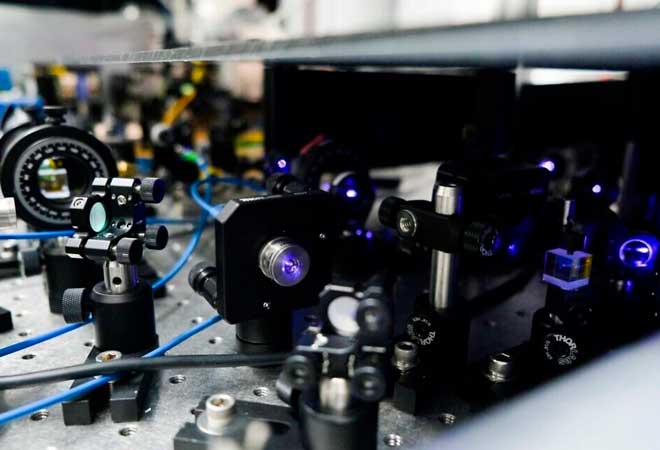Israeli engineers created the country's first quantum computer: What are its features?
What is a quantum computer? Computers, as we know, store data in binary code, and the smallest unit of information storage is the bit. It can only take one of two values: 0 or 1. In solving a problem, a computer performs many consecutive operations on bits, and in the case of complex issues, this takes a lot of time. Quantum computers work radically differently from classical computers. To solve any algorithmic problems, they use quantum bits-cubits.
Currently, there are no more than 30 such systems globally; nevertheless, scientists intend to expand their number from 5 to 64 qubits.
Workers at the Weizmann Institute of Science are assembling Israel's first quantum computer.
Scientists from Israel have developed a computational complexity of five quantum particles to accumulate and then process data. In total, there are about 30 such computers in the world.
Employees of the institute have been researching quantum computing in the institute's laboratory for several years. For the past three years, they have been working on assembling the device.
According to scientists, this device uses the latest technological ion trap, which allows magnetic or electromagnetic fields to capture the electric charges of molecules (ions) in a small chamber. The isolated ions turn into quantum bits (qubits), capable, in contrast to the usual bits, of taking two values (1 or 0) simultaneously due to "superposition". According to physicists, the particles provide simultaneous processing of multiple operations with possible results and significantly increase the speed of complex calculations in this state.
Leading companies such as Google, Microsoft, IBM, and Intel are working to make quantum computing accessible and develop new systems. In contrast, countries such as China, the U.S., Germany, India, and Japan are investing millions in developing their quantum technologies. According to The Times of Israel, Israel's five-quantum computer is on par with the U.S. company IBM, which will offer customers quantum computing in cloud services starting in 2021.
The Weizmann Institute plans to use this quantum computer to implement advanced algorithms. Scientists also want to build a giant machine capable of processing large amounts of data, but this is projected to take another year.
The future computer is named WeizQC in honor of one of the world's first WEIZAC computers, created at the Weizmann Institute in the 1950s. With its help, it is planned to run 64 qubits and reach a quantum advantage, so far available only to computers assembled in the academic labs of Google and the University of Science and Technology in China.
Quantum computers will be able to solve complex problems that are currently technologically inaccessible successfully, and their capabilities are still difficult to assess, according to project leaders. Examples include calculating traffic, encrypting cryptographic data, and researching new kinds of molecules and drugs.
Recall that IBM recently demonstrated what quantum computers might look like in the future. The company is already working on creating the next generation system called IBM Quantum System Two, the launch of which is scheduled for 2023.
Meanwhile, Google plans to develop a universal quantum computer by 2029. It will be able to conduct error-free calculations for scientific projects and large businesses.




